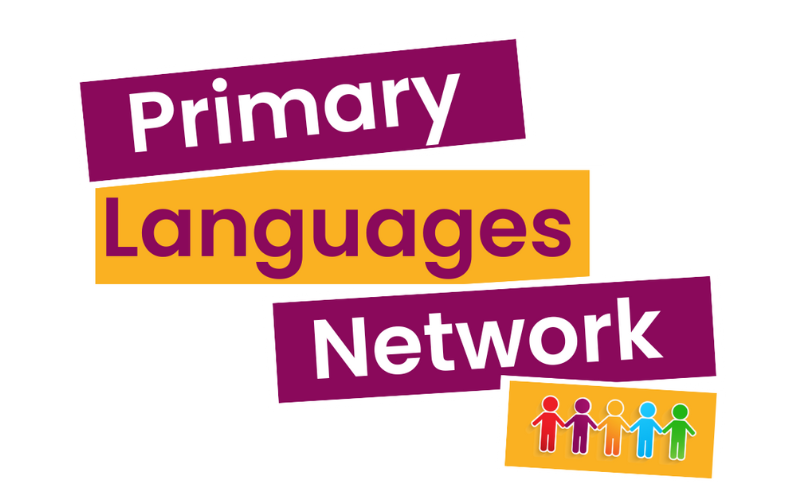We welcome the release of Ofsted guidance this week about Primary Language Learning and that also secondary colleagues can demonstrate that they are “cognisant" of prior learning and progress in KS2 MFL.
We are delighted that there have been informal reports of the inclusion of a question in the Ofsted pupil questionnaires about “enjoyment of primary language learning”.
We help all our network schools, existing and future,to meet the requirements of the DfE KS2 MFL PoS .The subject planning, teaching resources and network community help schools to meet the requirements set out in the Ofsted guidance.
At the heart of all we are trying to achieve in primary language learning is making progress in language learning skills through the“craft of the primary classroom”.
We hope that this blog post offers network schools and prospective members clarity and helps these schools feel secure that they can or do meet the requirements set out in the Ofsted guidance.
Let’s take a look at this first video guidance from Ofsted (March 2016):
The key points to consider are that Ofsted:
- "does not have a view on which foreign language should be taught"
We offer schools a choice of three comprehensive SoW in French,Spanish and German in line with the DfE KS2 MFL PoS Attainment Targets. There are KS1 learning packs in French and Spanish from YR to Y2. Our Treasure chest materials contain taster language activities in Italian and Mandarin Chinese
- "does not have a view on how it should be taught"
The Network VLE offers schools a wide range of options to support delivery models.Our “effective provision” has developed over time and we are able to offer a dynamic service, able to review and adapt our materials and support to meet schools' requirements..
The comprehensive KS2 SoW can act as a training manual for less experienced classroom practitioners.We now offer Ready Made French and Spanish, thematic packs of learning based on the SOW with identified DfE KS2 MFL ATs and language learning skill lesson objectives. The 19 Cross Curricular thematic folders allow teachers to select learning packs linked to the whole school curriculum and the Creative Curriculum Simple Solutions help teachers dovetail language learning with whole school teaching and learning approaches. Seasonal Specials offer language learning linked to cultural events during the school year.This wide range of choices and flexibility sits within a clear framework of progression in language learning skills.
- does not have a view on the amount of time that's allocated to learning the foreign language
Flexibility is key in primary schools. We work with schools that plan for 30 minutes through to 60 minute lessons or 10 minutes per day or different year groups in alternate half terms and mixed age classes.We have tried to ensure that the SoW offers this flexibility.Teachers can select key activities,use the “Follow Up” activities instead or leave a follow up activity for the class teacher if a PPA teacher or TA delivers the language teaching.
- “effectiveness of provision”
We offer schools guidance, consultancy and “1 to 1” teacher support to plan for long term effective primary language learning across KS2 (and in KS1 and on in to Y7 KS3).
The "School Implementation Plans" and CPD Tools offer schools both downloadable and interactive support as school progresses through our four stages of MFL development – starting off, developing , establishing and enhancing - to achieve outstanding primary language teaching and learning
We are at the end of the email or phone to support schools with questions and next steps and can deploy an appropriately qualified and experienced colleague to school to support. We offer staff language upskilling, pedagogy CPD, subject coordinator “1 to 1” support or SLT consultancy, staff meetings, network local meetings and webinars. Take a look at our CPD Training Schedule.
- progress in the four skills of listening, speaking, reading and writing
Our KS2 Primary Languages SoW ensures “progress in the four skills of listening, speaking, reading and writing”. Each lesson works toward the mastery of a DfE KS2 MFL Attainment Target. The children explore regularly the phonics of the language, language learning skills and develop an understanding of basic grammar (nouns, adjectives, some common present tense verbs).
- evidence that pupils ...are able to develop accurate pronunciation
Authentic native speaker listening materials such as song clips, story clips, podcasts, and sound files ensure that children have the opportunities to “develop accurate pronunciation”. The VLE allows teachers to access directly authentic song and, story sound files plus authentic native speaker video clips that are age and stage appropriate and of interest to the children. Below is a Year 4 child in February 2016 reading aloud her own independent writing about an outer space character and working towards being able to "describe people, places, things and actions orally and in writing"
- evidence that pupils are given increasing opportunities to develop their language skills
“Let’s Read” KS2 activities develop and explore reading skills from sound spelling links to reading aloud and reading comprehension tasks. “Phonics Footpaths” explore core sound spelling links and the “Pupil Portfolio helps teachers gather evidence to demonstrate independent work "describing people,places, things and actions orally and in writing".
- evidence that pupils are given increasing opportunities...... (to be)..... able to develop simple sentences, moving to joining these sentences together
The core teaching and learning includes writing activities from Year 3 onwards to explore the writing of simple target language words, phrases and sentences.
"Talk and Write” Year 3 to Year 6 creative writing packs allow teachers to help children create imaginative written and spoken stories linked to the core SoW.
- encouraged to use resources to support their language learning such as dictionaries
“Bilingual Dictionary Wizards” offers teachers a step by step guide to the use of the dictionary in language learning.Below you can see KS2 children in Bruche CP Warrington using Spanish English bilingual dictionaries to find unusual animals for their fantastical animal writing.
- "We look at the children's work,we look in books, we observe lessons, we look at the work that's displayed on the walls"
The network VLE allows schools to upload,collate and store all their work in their own secure “User Files“. Schools load up pictures of work on mini- whiteboards, photographs of activities, display,scans of children’s creative written or Art work, sound files and videos as evidence of effective provision,progress in the four core skills and enjoyment of learning. The VLE “Network Blog” and “Network Sharing” hub allow schools to share excellent and innovative practice and outcomes.
- “Well placed to move to further study”
Over the last four years we have been working through a variety of ways to track and assess the progress our children are making .We now have an effective system in place that tracks progress in the four core skills, phonics and grammar across KS2.
As mentioned before we have made this a flexible procedure so that teachers can adapt the assessment to suit their own school’s requirements. Some of our schools assess half termly, termly and currently only assess formatively or informally. We support schools to make the right decision for their own individual requirements and circumstance
“Puzzle It Out” activity sheets track progress in the four core skills across KS2. The“Phonics Tracker” and “Grammar Tracker” identify key opportunities and suggested activities to assess this progress.
Class tracking sheets give class teachers and SLT an overview of the teaching and learning taking place half term by half term.Teachers can record progress in core skills on the our assessment spread sheets and whether pupils are emerging, meeting or exceeding our “Assessment Benchmark Descriptors”. Children can reflect on their own progress using our AfL Clouds..
- “Progress over time”
This second Ofsted guidance video clip suggests that KS3 and KS4 colleagues must demonstrate how secondary language learning builds upon KS2 language learning and the progress their pupils make over time.
Since 2011 our work has been shared with local secondary school colleagues and this year we are working with four high schools and their local primary schools to share good practice and look for next steps and ways forward. The VLE has allowed us to set up secure shared areas for each transition group of schools. Primary and secondary colleagues have access to all the materials on the VLE and are establishing local and effective ways of sharing data and anecdotal evidence of the progress being made in KS2 language learning. KS3 and KS4 colleagues in these groups are now cognisant with the progress being made in KS2 language learning skills and planning ways to build upon the foundations laid in KS2 language learning whether or not the children change languages.
I welcome the fact that in this video KS2, 3 and 4 are all mentioned. A bridge has been identified between key stages and I look forward to helping current and future network ,members both primary and secondary build bridges between schools and stages that affords “ effective provision” and “progress over time”!
You may be interested to look at the "Associate Language Teachers blog post "snapshots of their lessons" and how we are working toward mastery of the DfE KS2 MFL PoS ATs.
Membership of Primary Languages Network is available to all schools, please view our online flyer for further information and membership options.
. .






